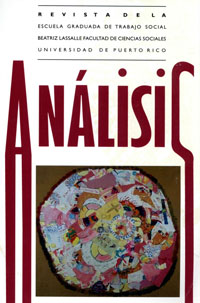Abstract
The adoption of children is a legal and social activity that reaffirms the values of a society. This article discusses the historical, political, social, and cultural context of the adoption of minors. It presents the influence of different contexts in the social construction of adoption, as well as the creation of public policy approved in Puerto Rico, especially laws number 8 and 9 of January 1995. The role of research and social work is highlighted through the description of studies in Puerto Rico and other places. The authors made an invitation to consider alternatives that protect the human dignity of everybody in the process of adoption. It promotes the possibility for couples, women and men to give up their "Parens Patrie" to the State when they do not wish to keep custody of their children. This will avoid interventions by force and deprivation. Finally, it concludes that social work a profession, by its foundation, should have the responsibility to initiate actions toward the redefinition of public policy.Downloads
Download data is not yet available.

